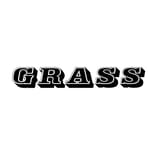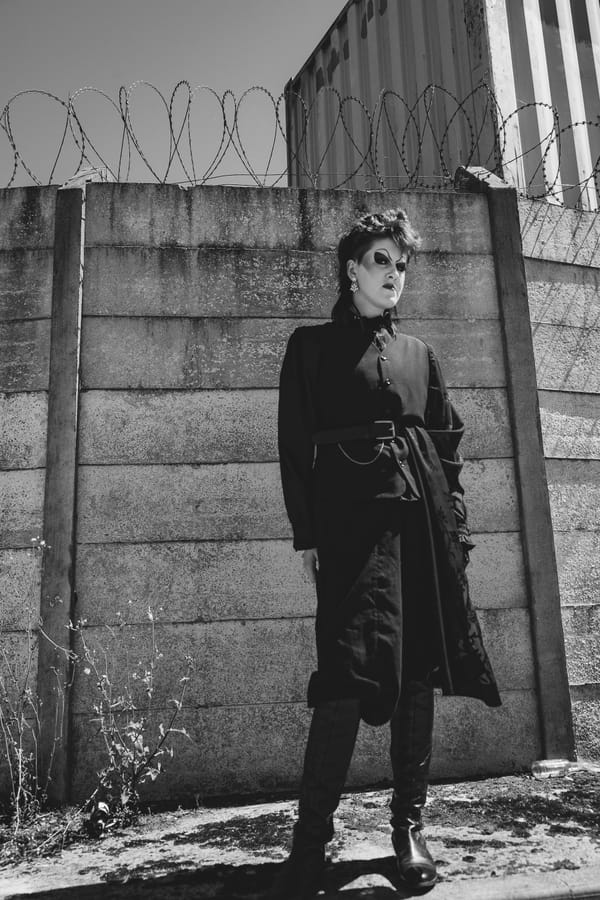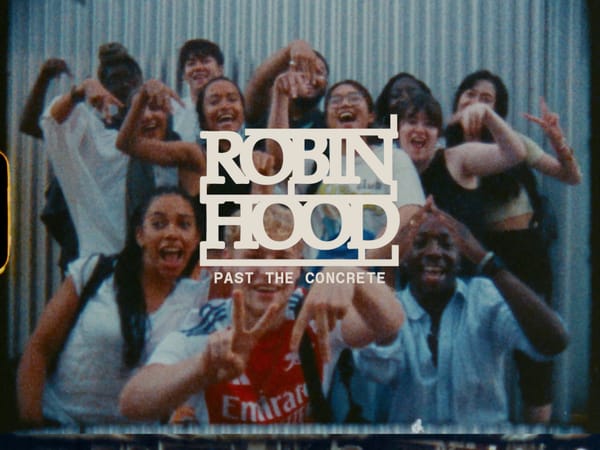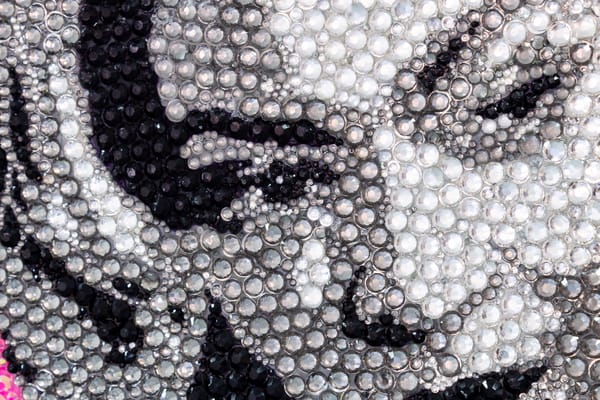"Jeanie, You Know You're a Witch": In Conversation with Jeanie and the White Boys
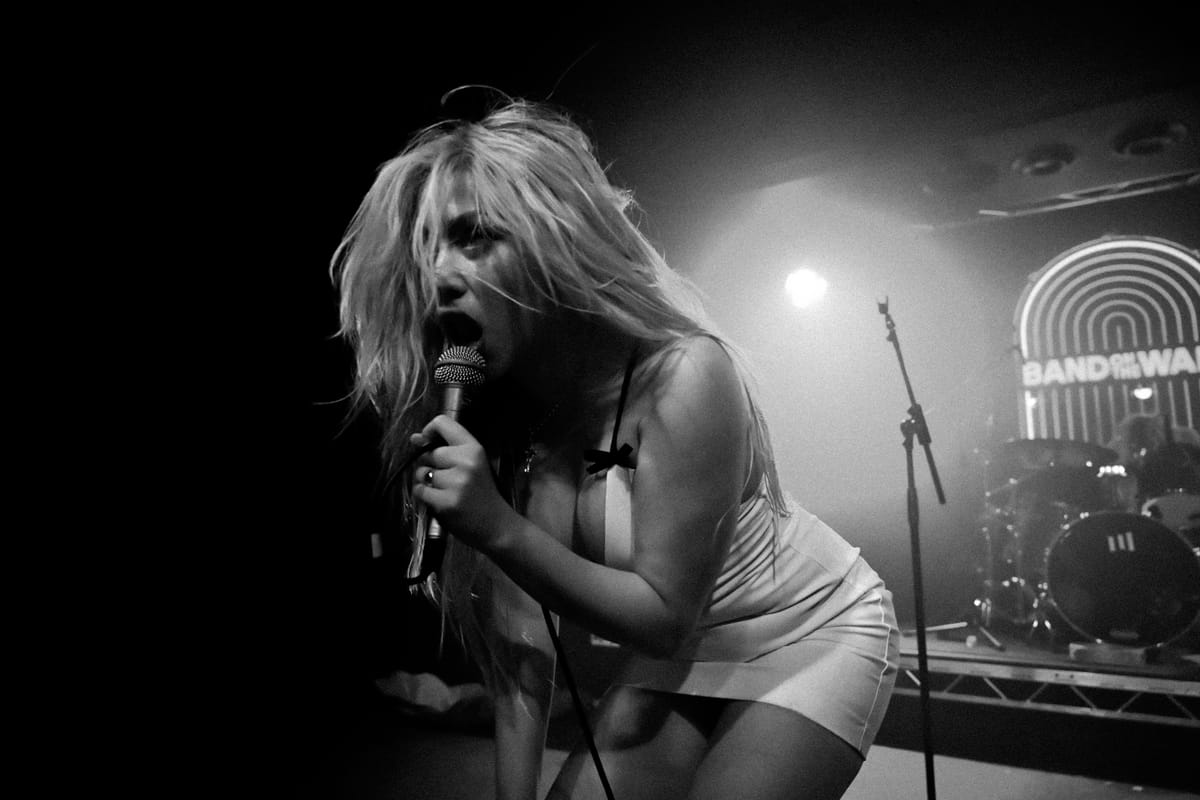
Written by Tommy Sissons
Jeanie and the White Boys have come bursting out of the gates. Since forming last year, they’ve released two singles, played Glastonbury (their second gig, no less), and toured across the UK. Emerging from the east London queer arts community and the south London punk scene, the band fuses both worlds into a striking, thrashing and mesmeric outfit - and they’re poised to take the country by storm.
I first encountered Jeanie and the White Boys at Bethnal Green Working Men’s Club for the summer launch party for their new single ‘Queen Bee’. Their performance that evening distilled everything that that makes Jeanie and the White Boys so engrossing: rockabilly and rock ’n’ roll pared to the essentials, charged with a punk ethos and dynamism, and fronted by Jeanie Crystal’s Brummie drawl.
Under the glow of a large heart-shaped light fixture and against a backdrop of tinsel curtains, audience members were invited on stage to pole dance while the band tore through a litany of unreleased songs. The venue perfectly embodied the band’s identity: a working men’s club steeped in radical history and working-class pride, now a platform for some of the best queer acts in the country.
Jeanie Crystal is one of those rare singers with punk in her DNA. In a post-post-punk landscape increasingly infiltrated by privately educated musicians, she stands out as a representative of an authentic proletarian tradition, ready to talk on stage about “class war” and the “Boohoo girls” commonly derided by middle-class cultural gatekeepers.
Working-class punk refuses to be boxed in. It comes out swinging, unapologetic, and determined to claim its place, and Jeanie and the White Boys deserves theirs among the defining British bands of this era. Following their gig at the Old Blue Last supporting The Gash, I talked to Jeanie about the release of ‘Queen Bee’ and what’s next:
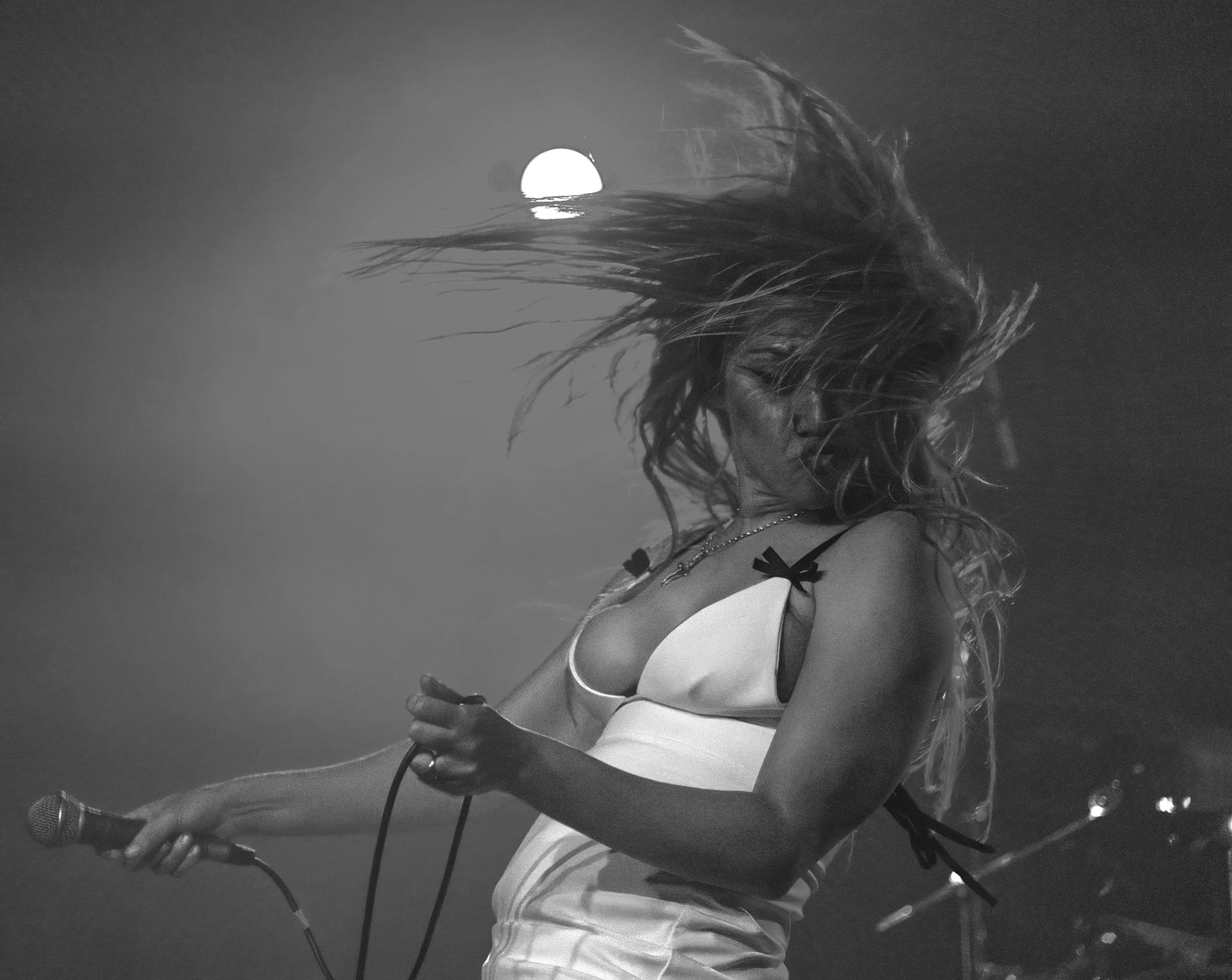
T: You emerged from the underground queer arts scene. How does that background shape the sonic and theatrical identity of Jeanie and The White Boys?
J: Yes, it’s a well-known fact that we were named by my favourite queen and dear friend Sharon Le Grand. The queer underground was the only “scene” that embraced me fully. All the other scenes are pretty oppressive - “cool” prisons; performative Bohemia with a harrowing lack of irony. You know - cosplaying the starving artist, French girls writing bad poetry about their vaginas, trust fund kids pretending to be sex workers ‘cause they think it’s cool – it sends a shiver down my spine.
Really good drag artists and queer art highlight the absurdity of fixed ways of being. Gender, role playing of any sort - it’s all drag. I suppose that’s rubbed off on me a bit. In fact, who am I kidding, it’s my whole schtick. Sonically, I’m not giving the gays that - that’s my own doing. Oh, and of course the white boys. Don’t forget them!
Really good drag artists and queer art highlight the absurdity of fixed ways of being. Gender, role playing of any sort - it’s all drag.
T: You work across film, art, and music. How do those worlds talk to each other in your creative process? What unique artistic possibilities does this cross-pollination open up for you and the band?
J: I believe in trying every medium if you can - even if you’re shit at it. I don’t believe in the ‘born genius’. I believe in courage, taste and the luxury of time to have a go.
I was actually trying to look over all my work the other day - the video works, installations, performances. There’s so much shite that I hate! Mainly because I was comprising work for other people. But there are a couple of gems in there though, not gonna lie.
Since writing this album with the boys, a lot of blocks have fallen away that I’ve recently realised were fucking my with process. I’ve never been this creatively selfish. I’m only working for me and think I understand how Aleister Crowley or Charles Manson felt. It’s good, man! I’m in beast mode! The possibilities feel limitless I still don’t really have a clue what I’m doing though.
T: Your performance at BGWMC produced an atmosphere of feverish release and physicality. To me, there was something cathartic about it - almost invocatory or ritualistic - where the boundaries between performer and audience blurred, and everyone became involved in a collective summoning and channelling of a powerful, unconscious energy. There's potential for radical cultural change in that sort of communal experience. Is that something you consciously aim for, or does it just erupt naturally?
J: Ha! I mean I’ve always been blamed for starting trouble from a little girl. It was always my fault even when it definitely wasn’t. I used to have this dead camp teacher who every time he called the register would be like: “Jeanie, you know you’re a witch!”
I used to feel sad when I was growing up about my character; like I felt there was something wrong with me, then you just think ‘fuck it, I couldn’t shut up anyway’. So, I suppose maybe that’s what you’re asking me about - sharing yourself with the audience and what happens when you do that. What’s that Sinéad O'Connor quote, “The job of an artist is to be themselves at any cost”. That’s fucking hard though. In fact, saying that out loud is petrifying. But in a world that is so artificial it feels like the last port of safety.
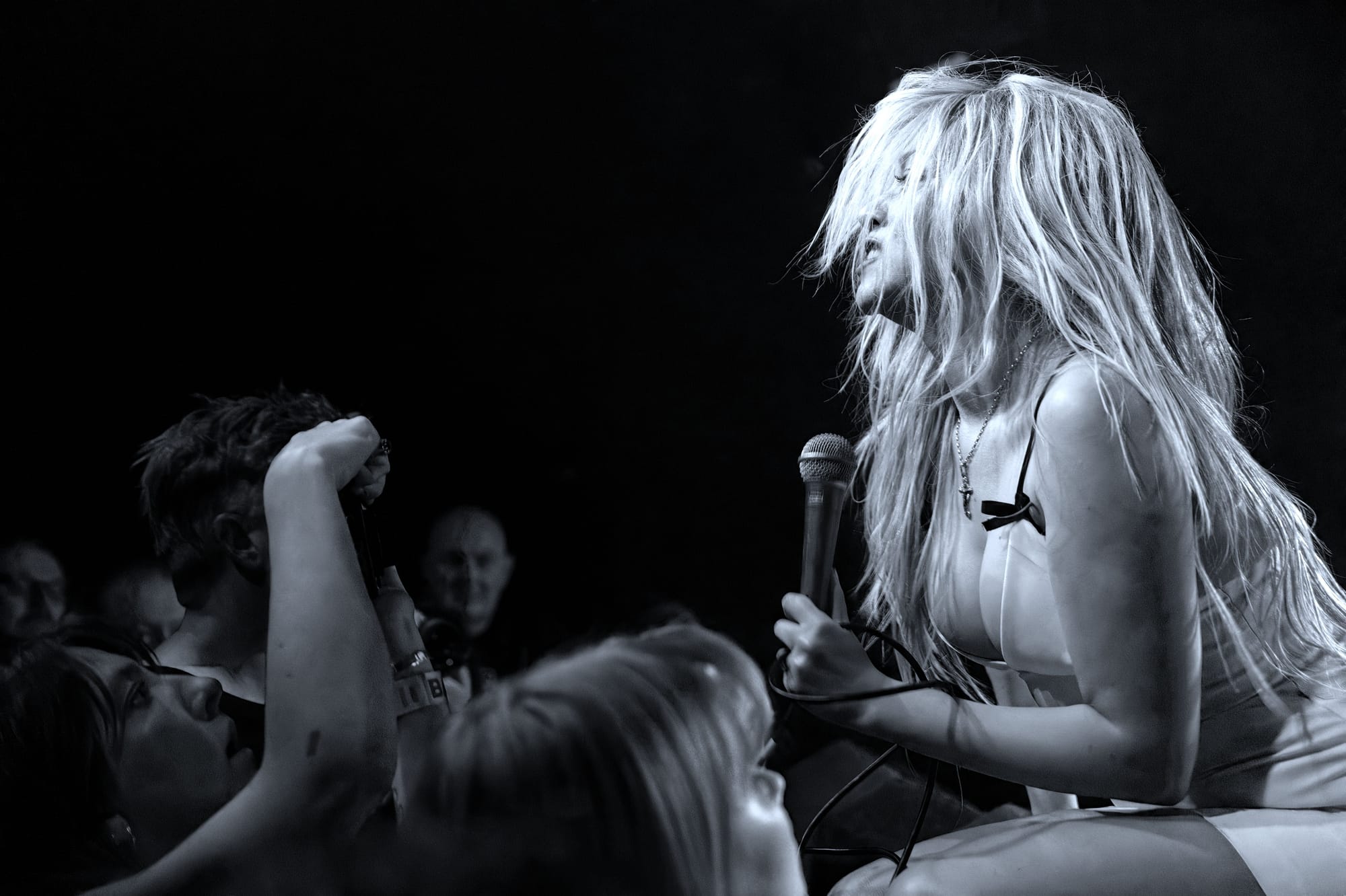
T: Fury, identity, and liberation are recurring themes in your songs. How do you channel these through punk and blues, especially when so many musicians from wealthy backgrounds are entering the punk scene without the lived experience or authority to represent them authentically?
J: Listen, I don’t dislike people with money and privilege. I’ve loads of toff mates (a lot them undercover, I may add) and yeah, let’s not get it twisted - to be an artist today you either need a trust fund, or you need do fucked up shit like me to keep it all going. My only frustration is the quality of the output - it’s fucking shoddy and not in a good way. That’s where my frustration lies.
A lot of my heroes came from wealth so there’s no excuse. You know of course not all art has to be about being poor or oppressed but if you’re going to get involved don’t make it painfully boring or insidiously twee! We are in one of the darkest eras of human existence - why pick twee?! Oh, wait I know why! Privilege! You could argue Kate Bush is twee - a hero of mine, posh hero, but dive into the lyrics and imagery and she’s got something to say. She’s not swanning round the end of days in a Cath Kidston dress. Does she make dresses?
We are in one of the darkest eras of human existence - why pick twee?!
T: What’s the story behind the latest single, ‘Queen Bee’?
J: So, it’s pretty glaringly evident the nation has been split by the small minority of gluttonous billionaires who are hell bent on accelerating us to some transhuman dystopia in a futile psychotic attempt to prove they were made in the image of god. Absolute fucking maniacs that own everything and shape the narrative. This, in turn, has made it hard to live psychologically and physically.
‘Queen Bee’, in its essence, is about standing strong in what you believe. I’m not calling for unity ‘cause I don’t really wanna be unified with those tit bags that are flying flags in the name of racism and ignorance. I mean if they have an ethical awakening from some of my work: hallelujah, praise Jesus! But that depth of hatred and stupidity feels like a rot that’s a deep-set shadow.
I’m calling for personal sovereignty and radical understanding of self and others through empathy - it’s our duty in resistance as a community. I wish I written the lyric: ‘We can make love, baby, when your mother has gone’ - instead of ‘woman’. That’s way more appropriate. ‘Cause you know there’s some serious Norman Bates action going on in the most powerful institutions.
I’m calling for personal sovereignty and radical understanding of self and others through empathy.
T: The debut album is coming. What should listeners be ready for?
J: I really love this album. Well … today. I can’t say the title ‘cause I have a little problem with this really famous pop star copying me. Hahaha. I’m not joking! But yeah, I’m really wearing the loves of my life on my sleeve for this record - unashamedly earnest. And I love Shirley Bassey as much as I love Iggy Pop so there’ll be a couple of surprise songs. I’m really excited to share next year.
T: If you weren’t in the creative field, what different life would you be living right now?
J: I’d have like twenty-five kids with ten different baby daddies.
T: How visible do you think class is right now in the punk scene, and in the broader arts world? Do you see it being confronted or ignored?
J: Ignored. Look at the stats and look at the work.
T: What do you want Jeanie and the White Boys to mean in ten years’ time?
J: Bloody hell, fuck knows! It best have earnt me enough money to get one of those really fancy face lifts or the whole thing would have been pointless.
T: Who else should we be listening to or watching right now (bands, musicians, artists, filmmakers, writers) - anyone you think should be on people’s radar?
J: Oh man! You have no idea how stuck in the past I am. It’s probably quite ignorant of me but I’m pretty shut off from modern popular culture. Let me know if I’m missing anything. I very rarely listen to anything new ‘cause I normally don’t like it. The last song I really loved was ‘Mum Does the Washing’ by a poet called Joshua Idehen - he gets it.
Tommy Sissons is the Editor-in-Chief of GRASS Magazine. He is the author of the novel 'Cautious, A Boat Adrift', and the polemic 'A Small Man's England'.

